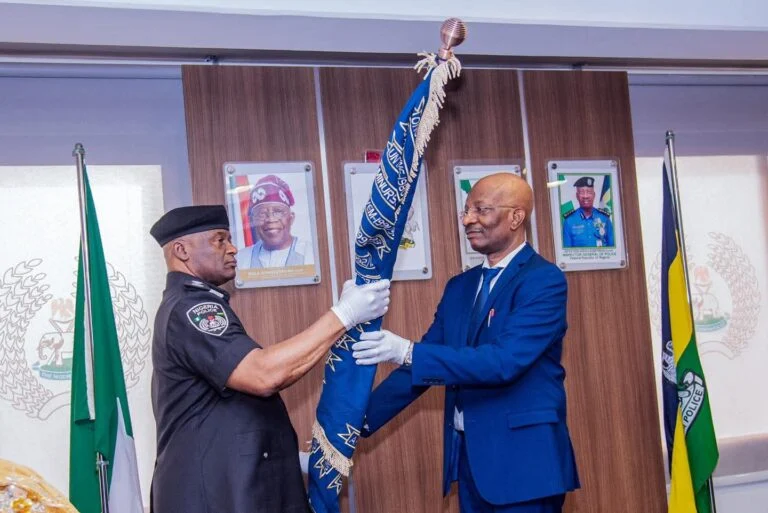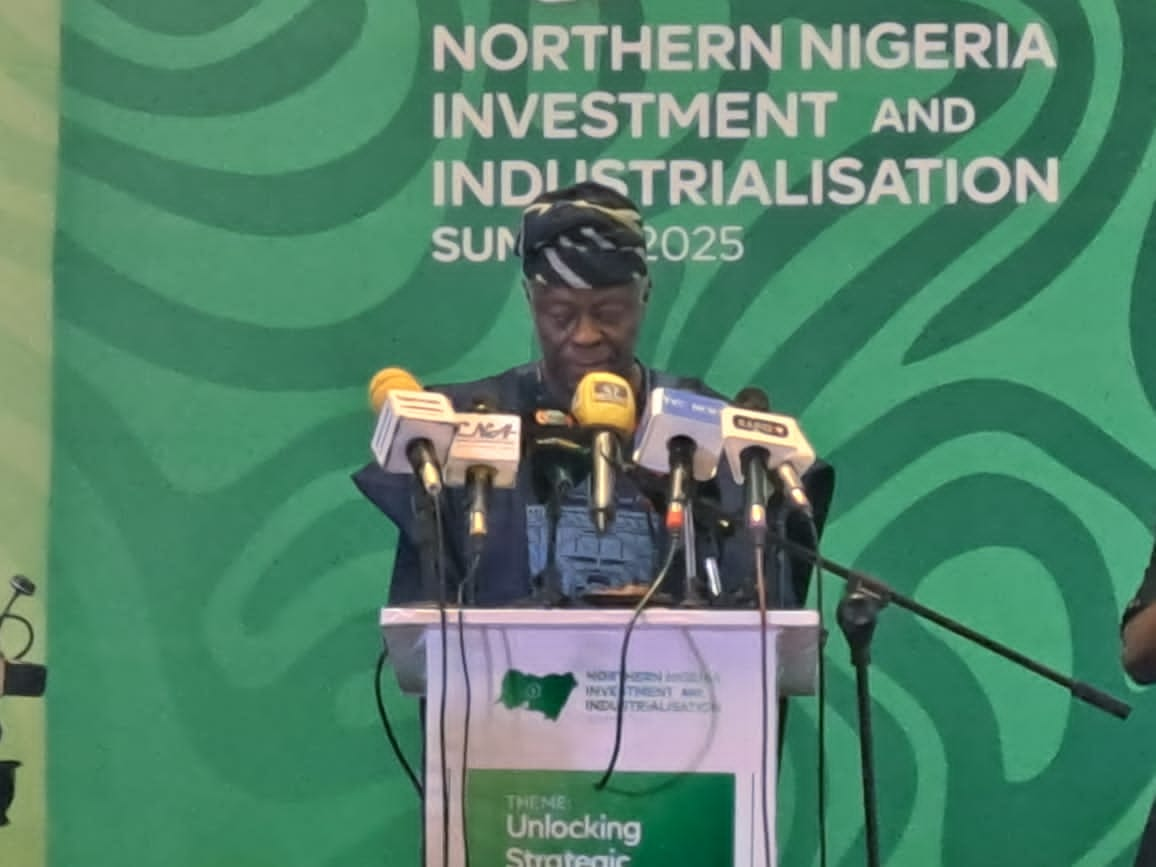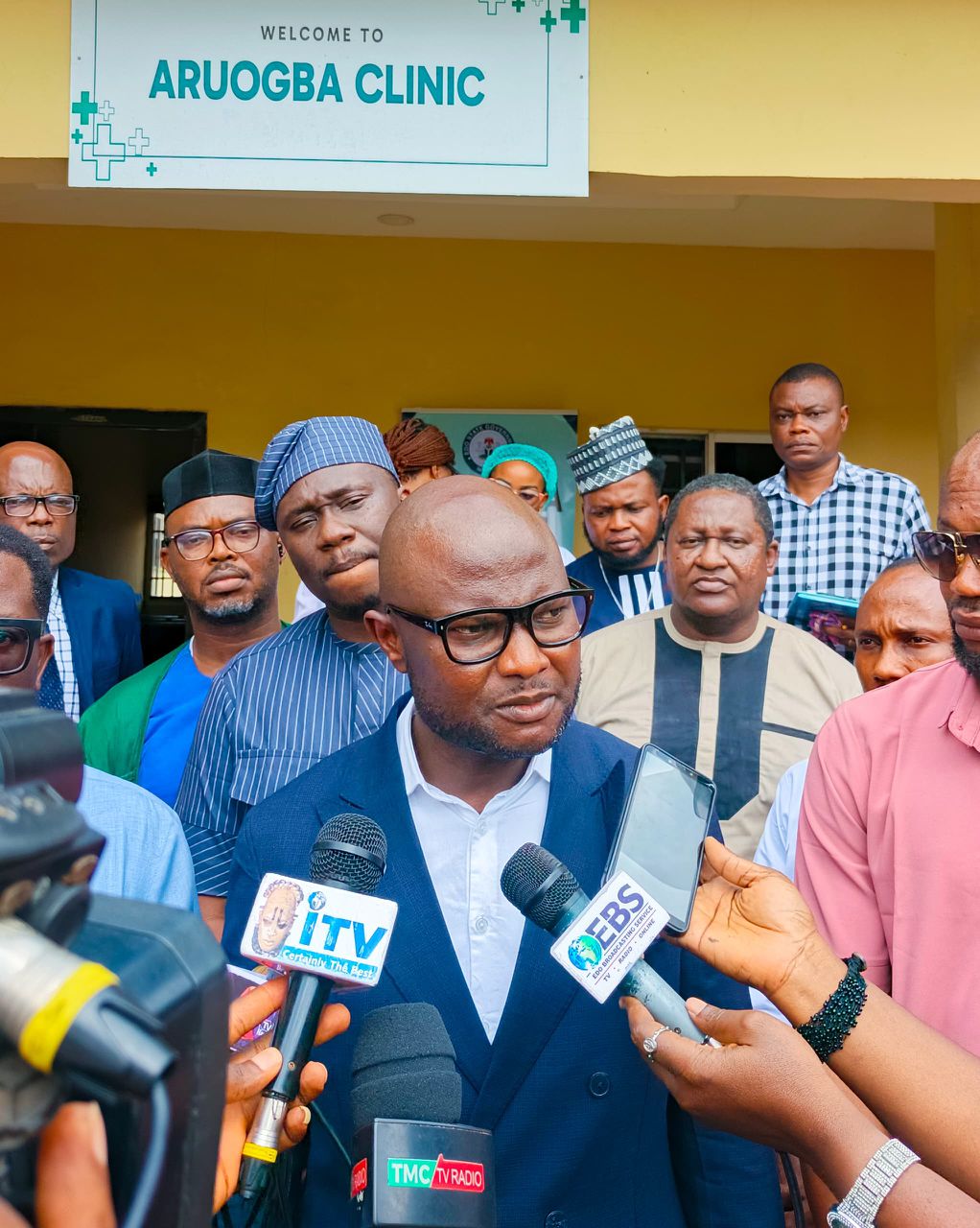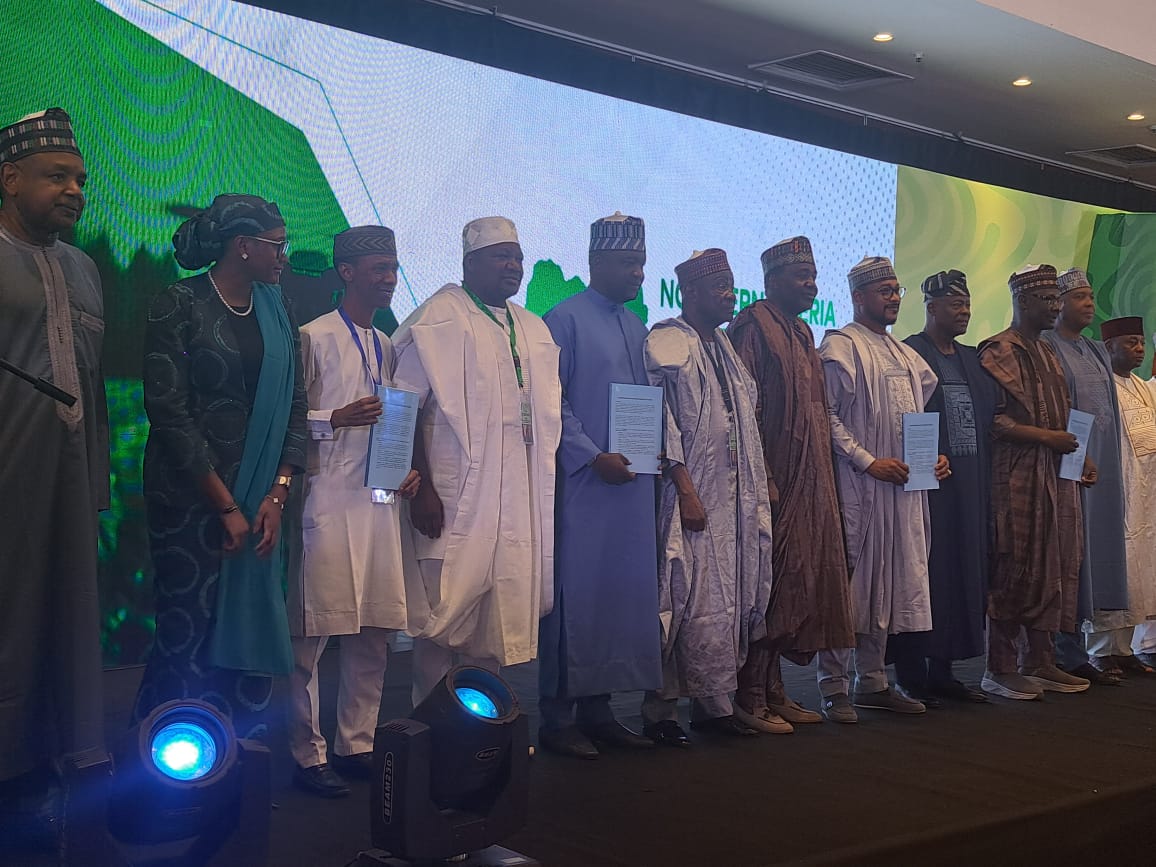By: Goodluck E. Adubazi, Abuja.
Nigeria’s currency, the naira, has not only stabilized but has also strengthened significantly in recent months, buoyed by a N7.4 trillion trade surplus and rising investor confidence, according to the Minister of Finance and Coordinating Minister of the Economy, Mr. Wale Edun.
Mr. Edun made this declaration on Monday, September 29, 2025, at the Northern Nigeria Investment and Industrialization Summit at the Abuja Continental Hotel. The event, themed “Unlocking Strategic Opportunities in Mining, Agriculture, and Power (MAP 2025)”, brought together key stakeholders across the public and private sectors.
Representing President Bola Ahmed Tinubu, GCFR, the minister highlighted the country’s recent economic achievements, attributing the positive trends to the administration’s Renewed Hope Agenda.
Economic Indicators Pointing Upward
Delivering President Tinubu’s speech, Edun announced that Nigeria recorded a N7.4 trillion trade surplus, while foreign reserves climbed to $42 billion. He also noted that inflation has started to ease, currently standing at 20.12% as of August, following a consistent decline over the past five months.
According to Edun, GDP growth in the second quarter of 2025 reached 4.23%, marking the strongest quarterly growth in a decade outside the post-COVID recovery period. Industrial growth also doubled year-on-year, with the agriculture and services sectors showing robust performance.
“This progress is not by chance,” Edun stated. “It results from deliberate, intentional, and strategic policies anchored on President Tinubu’s Renewed Hope Agenda, which focuses on macroeconomic stability, inclusive growth, job creation, and poverty reduction.”
Tinubu’s Reforms: Ending Privileges for the Few
Edun emphasized that under Tinubu’s leadership, structural reforms have reshaped the economy, removing subsidies and correcting foreign exchange distortions that, in his words, “benefited a few at the detriment of many.”
“We have removed the privileges that benefited a few and replaced inefficiency with transparency and competitiveness,” Edun said, noting that the policy shift has provided more financial resources to states and local governments, enabling broader development across Nigeria.
Focus on Northern Nigeria: Unlocking MAP Potential
The summit placed a special focus on the strategic role of Northern Nigeria in the country’s development, especially in the sectors of mining, agriculture, and power.
President Tinubu, through Edun’s address, described the North as central to Nigeria’s economic future, citing its vast mineral resources, expansive arable land, and potential for industrial growth.
“With over 70% of Nigeria’s arable land located in the North, agriculture is both the region’s heritage and its future,” the minister said. “The same applies to mining, where northern states host some of Africa’s most valuable deposits, including gold, lithium, tin, and coal.”
He also mentioned that reforms are underway to formalize artisanal mining and attract credible investors, while ensuring host communities benefit directly.
Infrastructure and Energy Projects Underway
Several strategic infrastructure projects were highlighted during the summit, including the Sokoto-Badagry highway and the AKK Gas Pipeline (Ajaokuta-Kaduna-Kano), which is nearing completion.
These projects are expected to enhance connectivity, boost industrialization, and facilitate energy access across the region.
Additionally, the World Bank and African Development Bank’s “Mission 300” project aims to deliver electricity access to 300 million Africans by 2030, with Nigeria set to be a major beneficiary, mobilizing over $32 billion in energy investments.
A Vision for a Prosperous Nigeria
Edun concluded by reaffirming the administration’s medium-term goal of doubling household income and significantly reducing poverty. He emphasized that sustained economic growth, above the population growth rate of roughly 3%, is essential to achieving this.
“No country has reduced poverty without growing faster than its population. That’s why we are targeting sustained growth of over 6–7%,” Edun explained.
He reiterated that Nigeria is on a path to economic transformation, led by a government committed to inclusive development, fiscal responsibility, and investor confidence.
President Tinubu Commends Northern Elders Forum
On behalf of the President, Edun congratulated Nigerians on the 65th anniversary of independence and 26 years of uninterrupted democratic governance. He also applauded the Northern Elders Forum and the 19 northern states for organizing the summit.
“The journey ahead is long, but the foundation is being laid, not just for Northern Nigeria, but for a united, prosperous, and globally competitive Nigeria,” Edun concluded.













